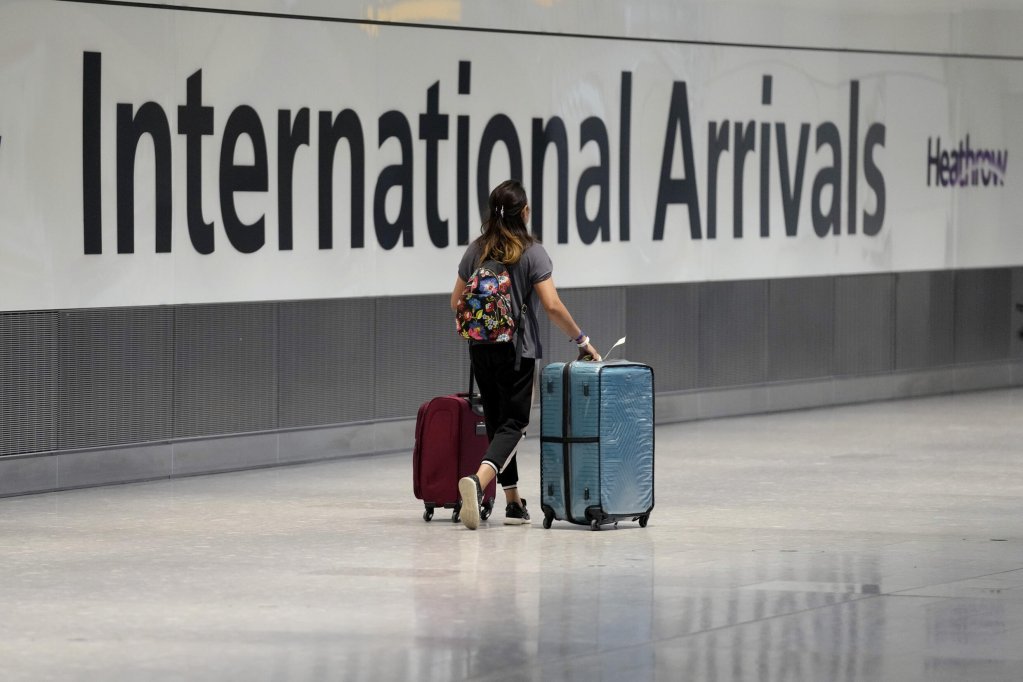The Council of Europe has issued a stern warning, saying that growing attempts by various European countries to have asylum seekers sent to third countries outside the European Union could put them in danger. It highlighted in particular amendments to the EU's Migration and Asylum Pact, which currently are being debated in the European Council.
Michael O'Flaherty, the Council of Europe's Human Rights Chief, said in a statement recently that the prospect of sending asylum seekers to third countries can lead to "severe trauma and prolonged suffering."
The comment came in response to a draft law that is currently being discussed at the European Council — one of the EU's main legislative bodies — which would give its member states more power to reject asylum seekers if they can be sent to another country that is deemed to be safe.
This so-called "safe third country" provision would form part of the EU's New Migration and Asylum Pact, which was signed off last year and is due to be implemented across the bloc in the course of the coming year.
Read AlsoAsylum in the EU: What is the new 'safe countries' list?
Managing migration: a key issue across the EU
Prior to the rolling out of the pact, there are now changes and amendments being discussed, including the right of member states to send asylum seekers to third countries to which they may have little or no connection.
This, some governments argue, would help deter irregular migration and ease political pressure within EU countries attempting to bring immigration levels down.

Changes to the law would also widen the meaning of the term "transit country" in EU law; the updated definition would include cases in which a prospective asylum seeker to the EU had only passed through an airport or instance where they entered the EU after staying in another country that is deemed to be safe.
The updated law would also extend to cases of unaccompanied minors, who until now had been excepted from deportation orders across the entire European Union.
Read AlsoEU Pact on Migration & Asylum may 'legitimize violations' believes NGO
The dangers of third-country migration deals
In his criticism, O’Flaherty added that the proposed policies could put migrants in severe danger, including torture, arbitrary detention, block their access to asylum or even result in death.
The Council of Europe has repeatedly issued warnings against such proposals of sending asylum seekers to third countries, urging European governments to consider the harm such transfers may cause, including "limited access to legal support and uncertain protection guarantees."
In a statement, it also stressed that the idea of migrants sent away under deals with third countries raised ethical issues and highlighted that EU member states should remember to "uphold their human rights and democratic obligations."

Read AlsoEU looks to broaden application of third safe country concept
US example sends stark warning to Europe
In its statement, the Council of Europe also compared the proposed changes to controversial policies rolled out in recent months in the United States under President Donald Trump, which have resulted in the deportation of countless migrants to third countries including South Sudan, Eswatini, El Salvador, and Rwanda.
Most of those migrants have no real connection to those destination countries.
Closer to Europe, the statement also made reference to the UK's yearslong attempt to outsource parts of its asylum system to Rwanda, which was only abandoned last year after the change of leadership in Britain.
Read AlsoUK:The end of the Rwanda plan
It also mentioned Italy's controversial efforts to send asylum seekers to Albania — which currently is not an EU member. Under Prime Minister Giorgia Meloni's directive, Italy opened two asylum centers in Albania to process asylum claims from migrants rescued by Italian coastguard officials in international waters.

The use of those two centers has repeatedly come under legal scrutiny and is yet to be fully implemented, but the Italian government has stressed that it would push forward with the plan, chiefly by adjusting its asylum laws accordingly, including changing its list of "safe" countries of origin.
Other EU countries as well as the UK "have shown interest in copying this approach," the statement also highlighted.
Read AlsoItaly: What next for the government's Albania plan?
Council of Europe: little influence on European Union
The issues raised by the Council of Europe, however, carry no direct weight in the EU.
While the European Union is a political and economic entity currently comprising 27 member states, the Council of Europe is an entirely separate body with 46 member states, which is focused on ensuring that certain standards in human rights are upheld. It has no direct role in EU politics at all and can in practice only issue advisory guidance.
Read AlsoMigrant offshoring: the EU's plan to deport more rejected asylum seekers under scrutiny
